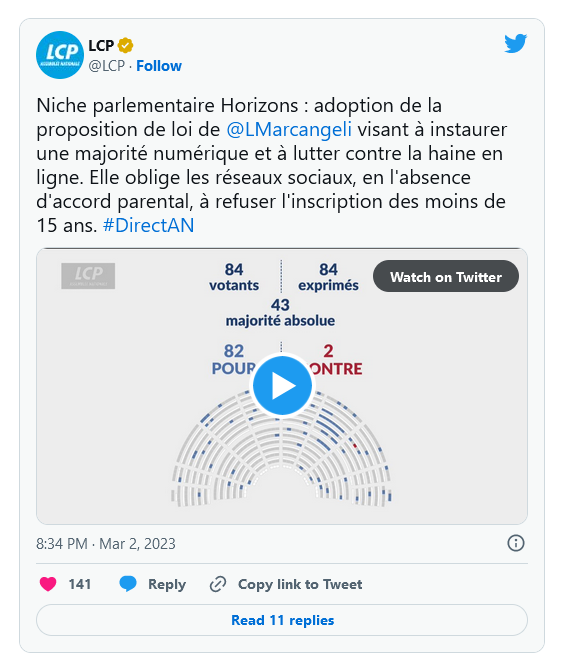The French government is one step closer to implementing age verification and parental consent for social media platforms and for pornography sites. On March 2nd, the National Assembly voted overwhelmingly in favor of the legislation and now it’s up to the Senate to pass the bill into law.
If the bill passes, France will force social media websites like TikTok and Facebook, as well as adult sites, to verify their users’ age and to request parental consent for anyone under the age of 15. Parents will also be empowered to terminate social media accounts for their children if they’re under 15.
Parental control may sound good in theory, but tech companies will struggle to implement adequate verification methods. The new law might also lead to data protection and privacy issues due to necessary personal data tracking and biometric technology. Similar concerns are being raised in Louisiana and other US states regarding the implementation of porn ID laws.
Online Privacy and Data Protection in Question
France has been working on online age verification since 2020, when it forced porn sites to block access to minors. The government is now in the process of extending that legislation to all social media platforms, but tech companies are concerned about technical solutions and online privacy regulation because the law doesn’t tell them how to implement age verification.
The initial 2020 legislation proved to be nearly impossible to enforce due to technical challenges and privacy hurdles, but now, in March 2023, France is testing a so-called double anonymity system. Users are supposed to verify their age or digital identity on a third-party site or platform that will generate a token. That token is then used anonymously on the website that requires age verification.
Double anonymity sounds like a good attempt at privacy protection, but the proposed legislation doesn’t mention exact implementation criteria or how data should be handled in this case. Each tech company is supposed to take its own measures to comply with the law.
The government seems to assume that websites can handle the extra steps necessary to deal with this new motion, which is likely to incur some costs. However, we’re talking about personal information that can be abused for data harvesting or cybercriminal activity like phishing, so the matter can’t be left to anyone’s discretion.
The French Junior Minister for Children stated that facial recognition and credit cards could be used for age verification. This raises some serious privacy and security concerns since current facial recognition technology can be heavily misused and abused.

Protect Your Digital Freedom and Privacy
Politicians in France, the UK, as well as the US, are calling for more online and digital technology regulation and it’s all done under the guise of protecting children. While GDPR was a step in the right direction for the EU, legislators are now constantly trying to restrict and control online access.
France, in particular, seems to be on a streak, as they’re now proposing bills for limiting screen time for children and banning parents from sharing images of their children if they fall under some vague criteria.
The internet should be free and protecting children isn’t a bad thing, which is why there is plenty of justification for regulating certain types of content. The problem is with the implementation of these laws that ignore technical hurdles and place responsibility in the hands of private entities. The barriers created by current legislation are more confusing and easily avoidable than helpful, not to mention the fact that they place your digital identity at risk of being stolen.
That said, age verification laws are location specific. Websites block access based on your location. So if you want to avoid giving your personal information or credit card data to various third party regulatory agencies or websites, simply use a VPN to change your IP address to a different country.
CyberGhost VPN offers more than 9000 servers around the world. Connect to one of them so you don’t have to reveal your personal data to anyone.



Leave a comment